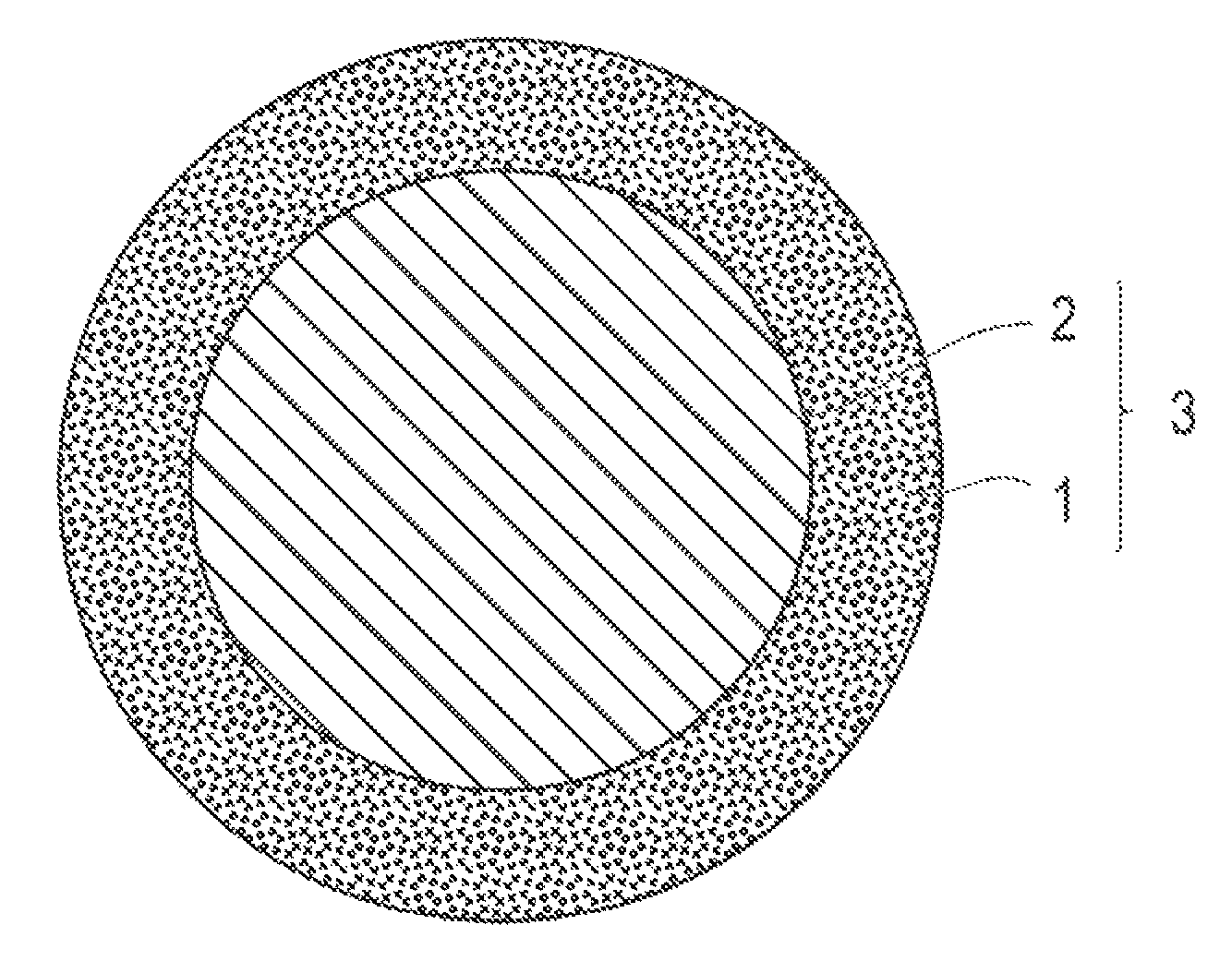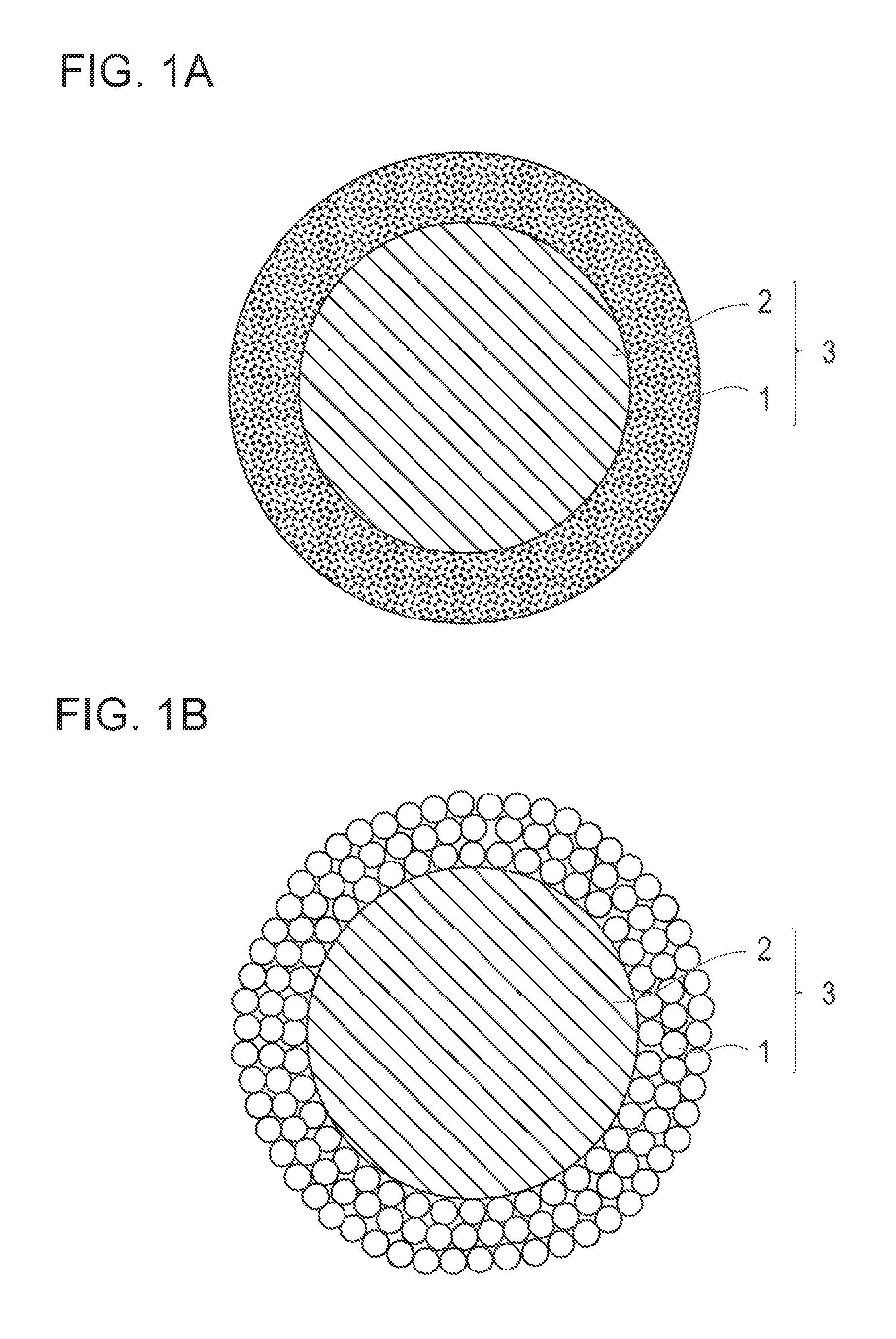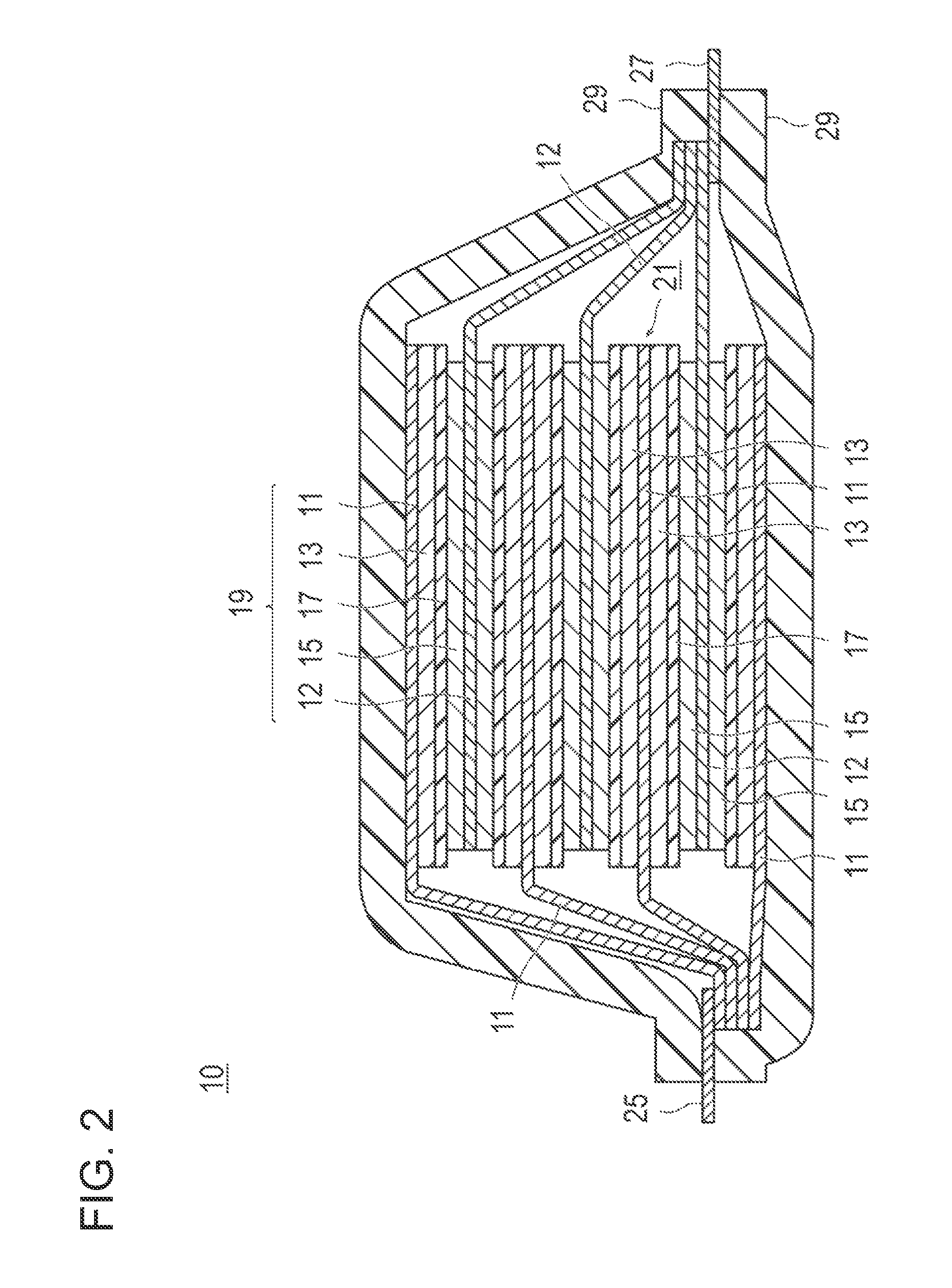Positive electrode active substance, positive electrode material, positive electrode, and non-aqueous electrolyte secondary battery
a technology of active substances and positive electrodes, applied in the direction of cell components, electrochemical generators, nickel compounds, etc., can solve the problem of insufficient improvement of cycle characteristics, and achieve the effect of improving cycle characteristics and reducing capacity
- Summary
- Abstract
- Description
- Claims
- Application Information
AI Technical Summary
Benefits of technology
Problems solved by technology
Method used
Image
Examples
example 1
(1) Production of a Positive Electrode Active Substance
[0121]To an aqueous solution (1 mol / L) having nickel sulfate, cobalt sulfate, and manganese sulfate dissolved therein, sodium hydroxide and ammonia were continuously supplied at 60° C. to adjust the pH to 11.3, and according to a co-precipitation method, metal composite hydroxide in which nickel, manganese, and cobalt were dissolved at molar ratio of 50:30:20 was produced.
[0122]The metal composite hydroxide and lithium carbonate were weighed such that the molar ratio between the total mole number of metals other than Li (Ni, Co, and Mn) and the mole number of Li was 1:1, and then thoroughly mixed. The temperature was increased at temperature increase rate of 5° C. / min, temporary calcination was performed at 900° C. for 2 hours in air atmosphere, the temperature was increased at temperature increase rate of 3° C. / min, and then main calcination was performed at 920° C. for 10 hours. After cooling to room temperature, the NMC compo...
example 2
[0127]The NMC composite oxide (LiNi0.50Mn0.30Co0.20O2) was synthesized in the same manner as the Example 1 described above except that the conditions for the main calcination were changed to 930° C. and 12 hours. As a result, a coin cell was produced and evaluation of each physical property and evaluation of a battery were performed. The results are shown in the Table 1 below.
example 3
[0128]The NMC composite oxide (LiNi0.50Mn0.30Co0.20O2) was synthesized in the same manner as the Example 1 described above except that the conditions for the main calcination were changed to 935° C. and 12 hours. As a result, a coin cell was produced and evaluation of each physical property and evaluation of a battery were performed. The results are shown in the Table 1 below.
PUM
| Property | Measurement | Unit |
|---|---|---|
| tap density | aaaaa | aaaaa |
| particle diameter | aaaaa | aaaaa |
| crystallite diameter | aaaaa | aaaaa |
Abstract
Description
Claims
Application Information
 Login to View More
Login to View More - R&D
- Intellectual Property
- Life Sciences
- Materials
- Tech Scout
- Unparalleled Data Quality
- Higher Quality Content
- 60% Fewer Hallucinations
Browse by: Latest US Patents, China's latest patents, Technical Efficacy Thesaurus, Application Domain, Technology Topic, Popular Technical Reports.
© 2025 PatSnap. All rights reserved.Legal|Privacy policy|Modern Slavery Act Transparency Statement|Sitemap|About US| Contact US: help@patsnap.com



